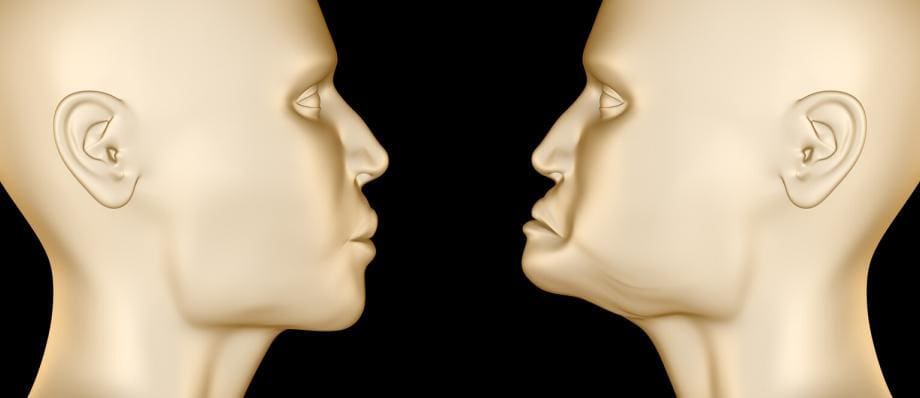Jaw bone resorption is a complex condition that involves the loss of bone density and volume in the jawbones. It can significantly impact a person’s oral health, facial aesthetics, and overall quality of life. In this comprehensive article, we will delve into the causes, consequences, and available treatment options for jaw bone resorption. Understanding this condition is crucial for patients, dental professionals, and individuals seeking to maintain optimal oral health.
Table of Contents
ToggleAnatomy and Physiology of Jaw Bones
Before delving into jaw bone resorption, it is important to understand the anatomy and physiology of the jawbones. The human jaw consists of two main bones: the maxilla (upper jaw) and the mandible (lower jaw). These bones provide structural support for the teeth, play a role in facial aesthetics, and aid in the process of chewing and speaking.
Causes of Jaw Bone Resorption
Jaw bone resorption can occur due to a variety of factors. The most common causes include:
- Tooth Loss
- Periodontal (Gum) Disease
- Trauma or Injury
- Denture Wear
- Systemic Conditions
Tooth Loss
When teeth are lost or extracted, the surrounding jaw bone may start to resorb due to lack of stimulation. This process is known as disuse atrophy and can lead to significant bone loss over time.
Periodontal (Gum) Disease
Advanced stages of periodontal disease, characterized by bacterial infection and inflammation of the gums and surrounding tissues, can cause the destruction of the bone supporting the teeth.
Trauma or Injury
Severe trauma or injuries to the jaw can result in bone resorption as part of the body’s natural healing response.
Denture Wear
Ill-fitting or unsupported dentures can exert pressure on the underlying bone, leading to bone loss and subsequent resorption.
Systemic Conditions
Certain systemic conditions, such as osteoporosis or hormonal imbalances, can contribute to jaw bone resorption.
Consequences of Jaw Bone Resorption
Jaw bone resorption can have several detrimental consequences, including:
- Compromised Dental Implant Success
- Facial Aesthetics
- Altered Bite and Chewing Ability
- Speech Problems
Compromised Dental Implant Success
Sufficient jaw bone volume and density are essential for the successful placement and long-term stability of dental implants. Bone resorption can limit the feasibility of implant-supported restorations.
Facial Aesthetics
Progressive bone loss in the jaw can result in a sunken or collapsed appearance, affecting facial aesthetics and contributing to premature aging.
Altered Bite and Chewing Ability
As the jawbone diminishes, the alignment of the teeth can be affected, leading to an altered bite and reduced chewing ability.
Speech Problems
Significant jaw bone resorption may affect the positioning and stability of the tongue, impacting speech patterns and pronunciation.
Diagnosis and Evaluation
Dental professionals utilize various diagnostic tools to assess jaw bone resorption. These may include X-rays, cone-beam computed tomography (CBCT), and clinical examinations. A comprehensive evaluation helps determine the extent of bone loss, identify the underlying cause, and develop an appropriate treatment plan.
Treatment Options
The treatment of jaw bone resorption depends on the severity and cause of the condition. Some common treatment options include:
- Bone Grafting
- Dental Implants
- Ridge Preservation
- Denture Adjustments or Replacement
- Periodontal Treatment
- Hormone Replacement Therapy
- Medications
Bone Grafting
In cases where the bone loss is significant, bone grafting procedures may be performed. This involves taking bone from another part of the body or using synthetic grafting materials to augment the jawbone.
Dental Implants
Dental implants can replace missing teeth and provide stimulation to the jawbone, helping to prevent further bone loss.
Ridge Preservation
After tooth extraction, ridge preservation techniques can be employed to reduce the rate of bone resorption and maintain the volume and contour of the jawbone.
Denture Adjustments or Replacement
Ill-fitting dentures can contribute to bone resorption. Adjustments or replacement of dentures can alleviate pressure on the jawbone and improve oral function.
Periodontal Treatment
For cases of jaw bone resorption caused by periodontal disease, periodontal treatment aims to control gum infection, reduce inflammation, and halt the progression of bone loss.
Hormone Replacement Therapy
In cases where hormonal imbalances contribute to jaw bone resorption, hormone replacement therapy may be considered to restore hormonal levels and slow down bone loss.
Medications
Certain medications, such as bisphosphonates, can be prescribed to manage bone loss associated with osteoporosis or other systemic conditions.
Prevention and Maintenance
Prevention and maintenance strategies play a vital role in preserving jawbone health. These include:
- Good Oral Hygiene
- Regular Dental Check-ups
- Balanced Diet
- Avoidance of Risk Factors
Good Oral Hygiene
Maintaining proper oral hygiene practices, including regular brushing, flossing, and professional dental cleanings, helps prevent periodontal disease and subsequent bone loss.
Regular Dental Check-ups
Routine dental visits allow for the early detection of dental problems and timely intervention to prevent jaw bone resorption.
Balanced Diet
Consuming a nutrient-rich diet with adequate calcium and vitamin D promotes optimal bone health.
Avoidance of Risk Factors
Minimizing risk factors such as smoking, excessive alcohol consumption, and poor nutrition can help prevent jaw bone resorption.
Conclusion
Jaw bone resorption is a significant concern in dentistry and can have far-reaching consequences on oral health and overall well-being. Understanding the causes, consequences, and available treatment options is essential for both dental professionals and individuals seeking to maintain a healthy jawbone.
By identifying and addressing the underlying causes early on, implementing preventive measures, and seeking timely treatment, individuals can minimize the impact of jaw bone resorption. Regular dental check-ups, good oral hygiene practices, and a well-balanced diet are key components of maintaining healthy jawbones.
With advancements in dental techniques and technologies, various treatment options are available to restore and preserve jawbone integrity. Dental professionals play a crucial role in diagnosing, treating, and providing guidance to patients affected by jaw bone resorption, helping them achieve optimal oral health and regain confidence in their smiles.

